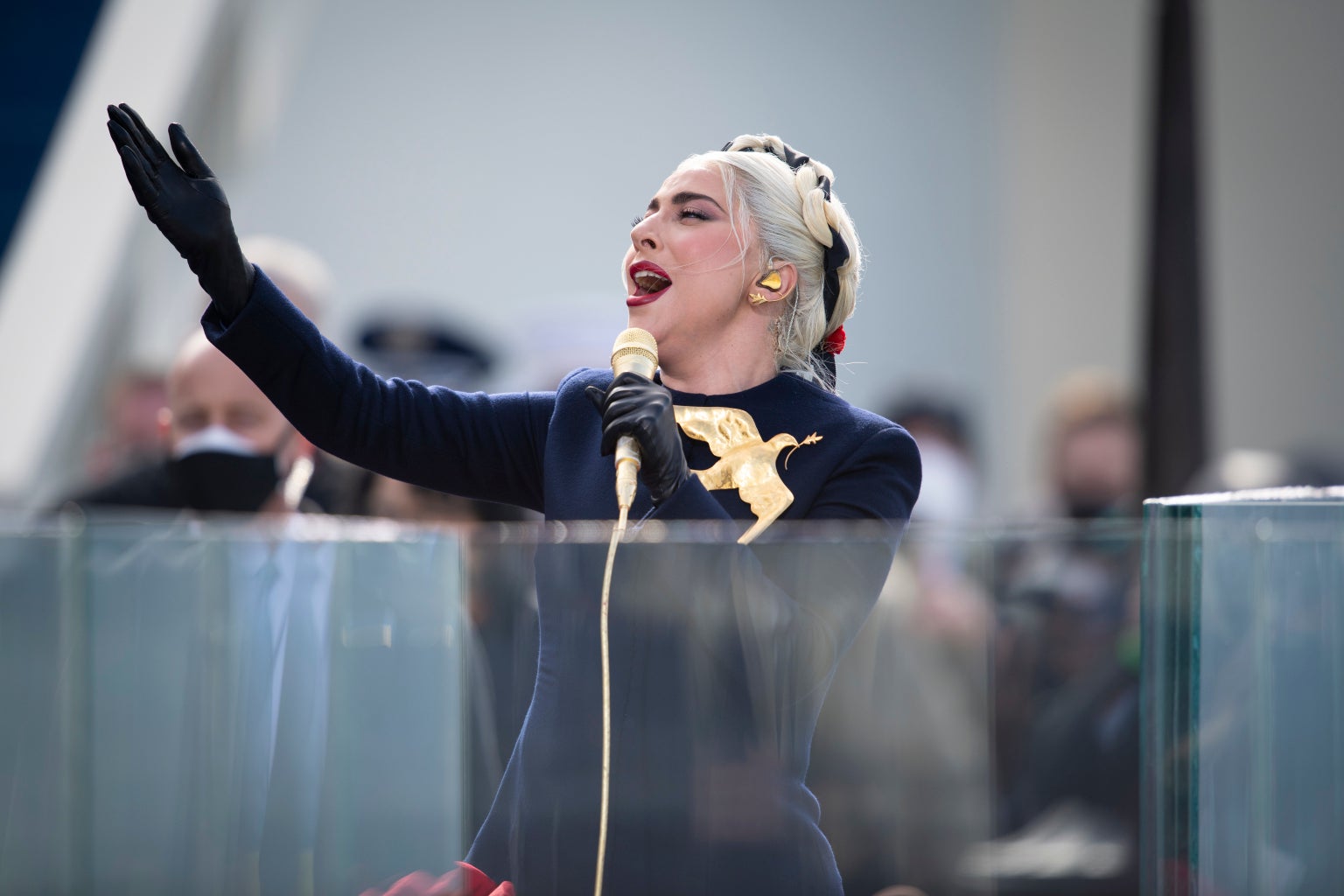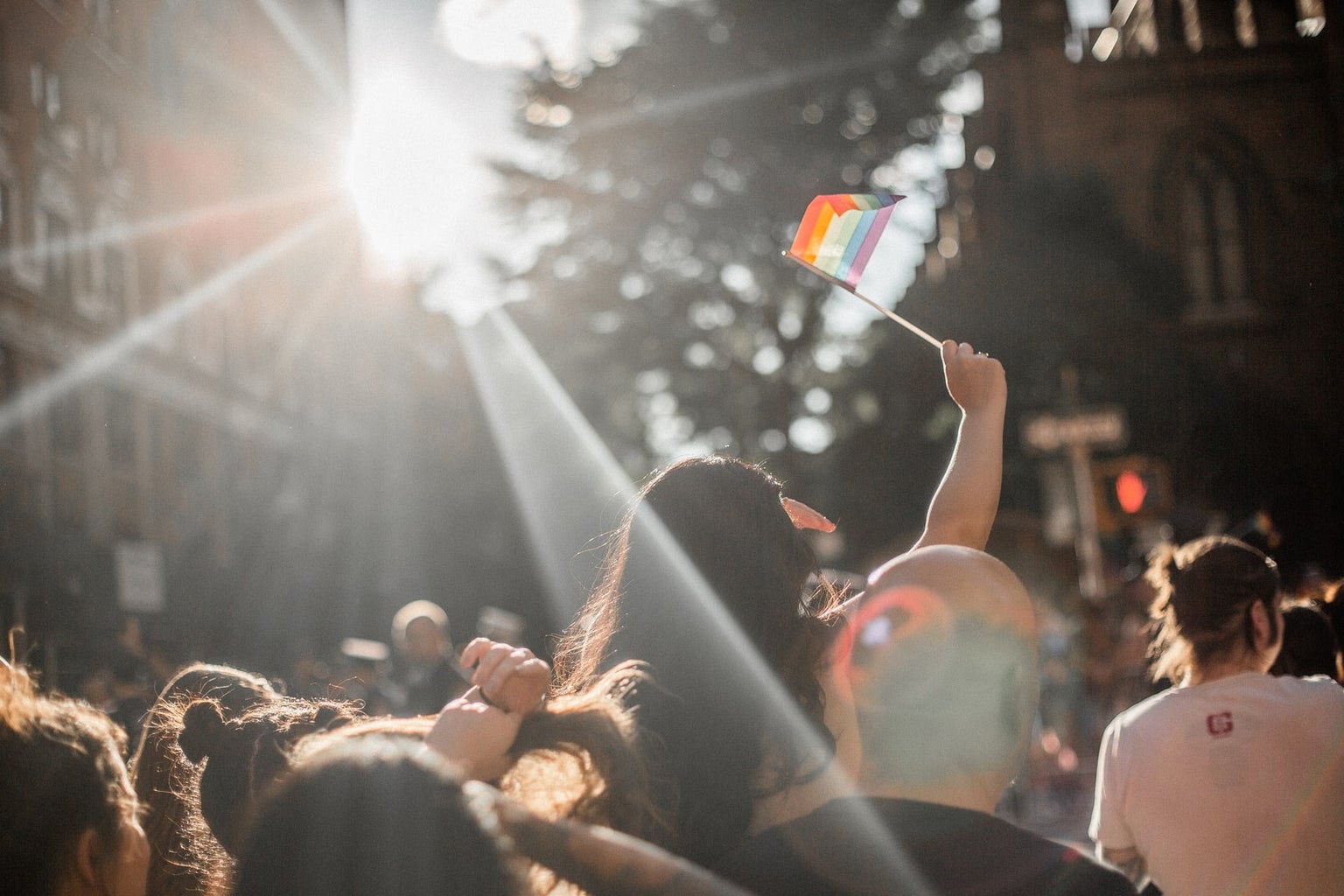I love 2000s pop music. I truly believe that it is a pop era like no other, but maybe that’s my nostalgia bias talking. The decade saw the likes of Britney Spears, the Black Eyed Peas, Pink, Rihanna, Christina Aguilera, and Beyonce (to name a few) rise to the top of the charts. Towards the end of the decade, a new pop icon emerged—one that would take the title and transform it into her own unique mantle. Lady Gaga crashed onto the pop music scene and absolutely no one was doing it like her.
With her recent work in films like A Star Is Born and House of Gucci, I think people may have forgotten how attention-grabbing and jarring she was. A Star is Born, as well as her relatively recent album Joanne, could be considered more ‘normal’ (however you want to define that). This more toned-down approach was combined with a more subdued presence on press tours. She wore gorgeous outfits, but they were definitely not as audacious as some of the looks she would wear in years prior. Ultimately though, Gaga is still Gaga, the personification of pop.
She broke onto the pop music scene in 2008 with her album The Fame, followed up shortly after with The Fame Monster. This album was a smash hit featuring Poker Face, Paparazzi, LoveGame and Just Dance with Bad Romance on the EP—and it was only her debut. Not only was the music incredibly successful (she was on practically every radio station) but her presence and persona as an artist were incredibly strong. You simply couldn’t avoid her. She kept it consistent: expect the unexpected.
Nothing exemplifies her commitment to shock like her 2009 VMAs performance of Paparazzi. Her live vocals and the choreography were insane, and the entire performance had such a cohesive theme. She opened with the statement “Amidst all of these flashing lights, I pray the fame won’t take my life,” and was dressed in a manner that was reminiscent of a camp Marylin Monroe. The theme really hit home when the tone changed dramatically as blood started spurting out from her and she clutched a supposed wound all the while continuing to sing. I watch that back now from time to time and have to remind myself just how genuinely alarmed the audience was at the time. You could audibly hear gasps from the viewers and the short-lived silence that followed because people had no idea what was going to happen or what was going on. She brought to life how society loves to watch stars climb the ladder of success because the higher they get, the farther they have to fall from grace. She made this messy, unpredictable, trainwreck of a pop star part of her persona. She made herself less susceptible to criticism by creating her image unapologetically and authentically her own.
The VMAs performance was just the first example of how, in Madonna-esque fashion, she adopted an entirely new persona for every album. Every album was its own era, it’s own performance. As an artist, she was dedicated to her piece. Taylor Swift does much of the same thing, as every album sees her transform her style and sound. Now, this could open up a whole conversation about female artists being forced to reinvent themselves and develop a brand for themselves to stay relevant in an effort to save themselves from being replaced by the next young artist. Male artists can sing the same genre of music and wear the same style of clothes and just overall have no public persona or visual identity and see overwhelming success. Of course, this is a generalization. Obviously, there are outliers such as Elton John, Queen, David Bowie, Prince, and more recently Lil Nas X. Interestingly, all these male artists went against norms surrounding gender and sexuality. For the most part, women have to be the whole package, and that package has to constantly be repackaged so that people don’t get bored. In contrast, when men do it, it’s just an added bonus.
Gaga ensured that you were never going to be bored. She was always showing up on red carpets, to award shows, and just on the street in the most absurd, yet conversation-starting outfits. I think the first thing that would come to everyone’s mind is the infamous meat dress. At the 2010 VMAs, Lady Gaga accepted the video of the year award for Bad Romance in a dress made of raw beef. Now, this was most definitely received with much controversy, but she stated that she wore it because “if we don’t stand up for what we believe in and if we don’t fight for our rights pretty soon, we’re going to have as much rights as the meat on our own bones. And, I am not a piece of meat.” She added that it was also her way of showing her disdain for the US military’s “don’t ask, don’t tell” policy which barred gay members of the military from disclosing their sexuality. Whatever you think of the dress, you can’t deny that it was certainly a cultural moment.
Lady Gaga was always making a statement. She was, and is, unapologetically herself and as a result, her popularity grew, especially among those who may have felt excluded from society at large. She became an icon in the LGBTQIA2S+ society. A notable example of her dedication to acceptance was the famous interview with Anderson Cooper where he asked her what she thought about people thinking she had both male and female genitalia (a different term was used in the interview). She responded perfectly. Not even for a second did she entertain the implication of the question, or react in a way that suggested the label was an accusation that should offend her. She didn’t answer because who cares. In her own words, “my fans don’t care and neither do I.”
Gaga and her personas were jarring, to say the least. She went beyond being unabashedly herself. Instead, she was an entirely otherworldly creature who underwent a sort of metamorphosis anytime a new album came out.
More recently, Chromatica, a deeper dive into hyper-pop, was released. Unfortunately, the pandemic meant that the complete press extravaganza didn’t happen, which was allegedly supposed to include a concert from space. All of this to say, Lady Gaga was a pop icon then and is a pop icon now, she is showing time and time again that there are no limits to what she might explore. No one was doing it like her and no one is doing it like her. Lady Gaga has inspired a generation to embrace their most authentic selves, and her message of radical self-acceptance resonated deeply with those who may have felt like outcasts. Lady Gaga contributed so much more than amazing music to the realm of pop culture, she gave weight to a counter-narrative of embracing difference in an era of ruthless criticism and tabloid gossip directed primarily at tearing successful women down.






